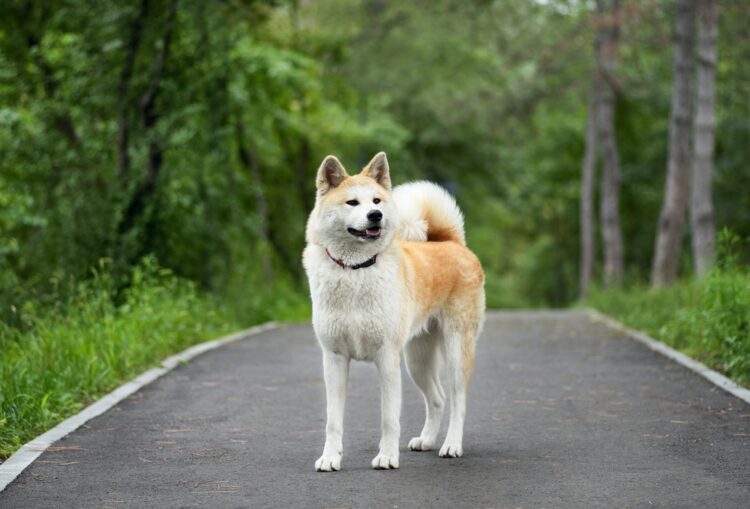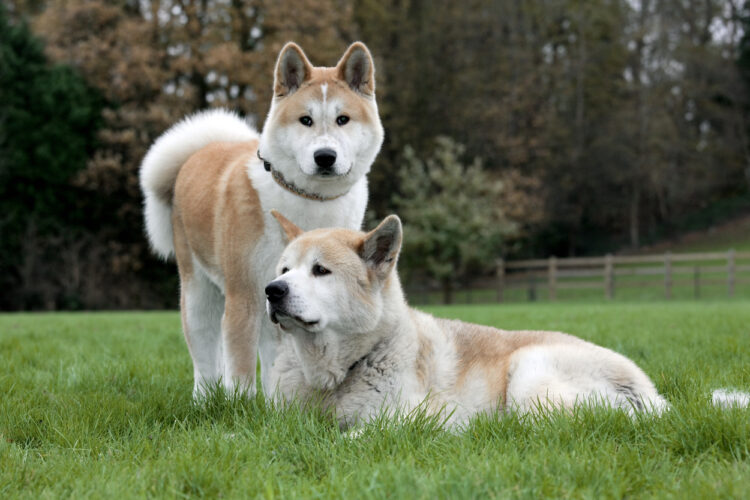
Welcome to our comprehensive guide on Akita dog breeds! If you're considering adding an Akita to your family or simply want to learn more about this majestic breed, you've come to the right place. In this guide, we'll delve deep into the history, characteristics, temperament, care needs, training tips, and more, to provide you with a thorough understanding of Akita dogs.
History of the Akita Breed:
The Akita breed originated in Japan centuries ago, where it was revered as a symbol of strength, loyalty, and courage. Initially bred for hunting large game such as deer and bear, the Akita's impressive physique and unwavering loyalty quickly made it a favorite among Japanese nobility. Over time, the breed evolved into two distinct varieties: the Akita Inu (Japanese Akita) and the American Akita. While both share common ancestry, they have subtle differences in appearance and temperament.
Physical Characteristics:
One of the most striking features of the Akita is its robust and powerful build. Typically large in size, with males standing between 26 to 28 inches tall and weighing 100 to 130 pounds, and females slightly smaller at 24 to 26 inches tall and 70 to 110 pounds. Their double coat is thick and plush, coming in various colors including brindle, white, and pinto. The breed's broad head, erect ears, and curled tail add to its distinctive appearance.

Temperament and Personality Traits:
Akita dogs are known for their strong-willed nature and unwavering loyalty to their families. While they are affectionate and devoted companions, they also possess a dignified demeanor and may be reserved around strangers. Early socialization and consistent training are crucial to ensure that Akitas develop into well-behaved and well-adjusted dogs. Despite their imposing presence, Akitas can be gentle and affectionate with children and other pets, especially when raised together from a young age.
Care and Grooming Needs:
Due to their dense double coat, Akitas require regular grooming to keep their fur in optimal condition. Brushing several times a week helps to prevent matting and reduce shedding, especially during seasonal changes. Additionally, routine nail trimming, ear cleaning, and dental care are essential parts of maintaining your Akita's overall health and hygiene. Providing ample exercise and mental stimulation is also crucial to prevent boredom and destructive behaviors.
Health Considerations:
Like all dog breeds, Akitas are prone to certain health issues that potential owners should be aware of. These may include hip dysplasia, progressive retinal atrophy, autoimmune disorders, and certain types of cancer. Regular veterinary check-ups, a balanced diet, and a healthy lifestyle can help mitigate the risk of these conditions. Responsible breeding practices, including health screenings and genetic testing, are essential to promote the long-term health and well-being of the breed.
Training Tips for Akita Owners:
Training an Akita requires patience, consistency, and a firm yet gentle approach. Due to their independent nature, Akitas may challenge authority and require a confident handler who can establish leadership without resorting to harsh discipline. Positive reinforcement techniques, such as praise, treats, and play, are highly effective in motivating Akitas to learn and obey commands. Early obedience training and socialization are critical to prevent behavioral issues and ensure that Akitas become well-mannered members of the family.
Exercise and Activity Requirements:
Despite their imposing size, Akitas do not have extremely high exercise needs compared to some other breeds. However, they still require regular physical activity to maintain their physical and mental well-being. Daily walks, play sessions, and interactive games are essential to prevent boredom and promote a healthy lifestyle. A securely fenced yard provides Akitas with space to roam and explore safely, but they should always be supervised when outdoors to prevent escape attempts or confrontations with other animals.
Feeding Guidelines:
Providing a nutritious and well-balanced diet is crucial to support the health and vitality of your Akita. Choose a high-quality dog food formulated for large breeds, and adjust portion sizes according to your dog's age, weight, and activity level. Avoid overfeeding and limit treats to prevent obesity, which can predispose Akitas to various health problems. Always ensure access to fresh water, especially during hot weather or after vigorous exercise.
Conclusion:
In conclusion, Akita dog breeds are a magnificent and loyal companion for those willing to invest the time and effort into their care and training. With their noble presence, unwavering loyalty, and loving nature, Akitas have rightfully earned their place as cherished members of countless families around the world. Whether you're drawn to their rich history, impressive appearance, or steadfast devotion, the Akita is sure to capture your heart and leave a lasting impression for years to come.


